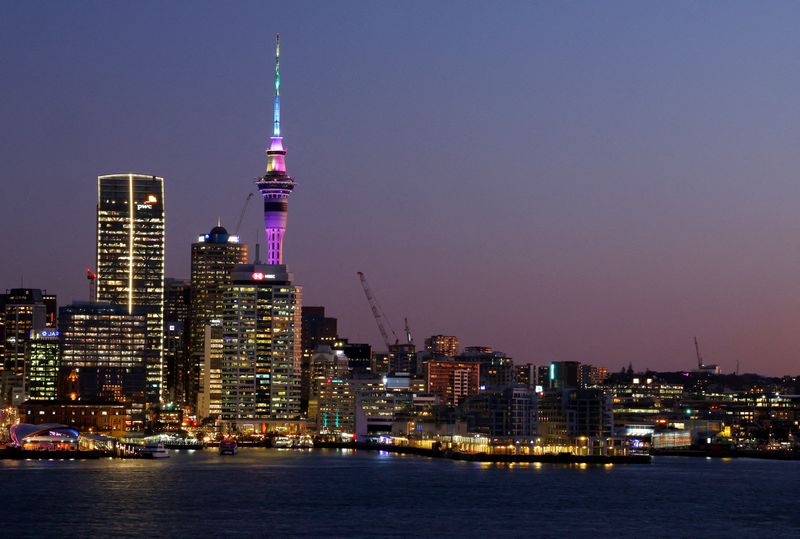
New Zealand home prices to rise modestly in coming two years: Reuters poll
By Veronica Dudei Maia Khongwir
BENGALURU (Reuters) – New Zealand home prices are forecast to rise around 5% in the next two years as lower interest rates boost demand again following a 19% correction in the market following the pandemic, according to a Reuters poll of housing experts.
These same analysts said average rent increases will outpace consumer inflation, continuing to squeeze the budgets of prospective homeowners saving up for a deposit in a market where house prices doubled in just seven years to a peak in late 2021.
A sharp economic slowdown and rising unemployment hit household incomes, but some optimism has returned following 125 basis points of interest rate cuts so far from the Reserve Bank of New Zealand (RBNZ), with more likely next year.
Average home prices were forecast to rise 5.1% in both 2025 and 2026 after an expected 0.3% fall this year, according to the median forecast from a Nov. 12-28 survey of 10 property market analysts.
The latest Reuters poll results compare to RBNZ forecasts for around 4% and nearly 7% house price growth in 2025 and 2026, respectively. House prices surged 40% during the pandemic as buyers scrambled to find properties with more living space.
“For now, the housing market’s animal spirits appear to be sleeping, but anecdotes suggest buyer interest has picked up meaningfully since the RBNZ started cutting…which is perhaps a signal that there might be a ‘buy the dip’ mentality forming,” said Sharon Zollner, chief economist at ANZ.
New Zealand’s economy slipped into a technical recession late last year but lower interest rates are expected to help the economy rebound next year.
Slowing wage growth, however, may leave many aspiring first-time buyers with no choice but to continue renting. The average home price in New Zealand is around seven times the average household income and 10 times in Auckland, its largest city.
“With falls in borrowing costs, the housing market will be more accessible for first home buyers. However, high house prices and the required level of deposits will still be a hurdle for purchasers,” said Satish Ranchhod, a senior economist at Westpac.
Urban home rents were expected to rise 3.5%, according to the median estimate from a smaller sample of forecasters, outpacing expected 2.0% consumer price inflation over the next two years from a separate Reuters poll.
Asked what will happen to affordability for first-time home buyers over the coming year, experts were nearly split, with four saying it would improve and three saying it would worsen.
Those who said it would improve noted the market would still benefit those who already own a home or have built significant equity, a recurring theme across Reuters polls of other housing markets.
(Other stories from the Q4 global Reuters housing poll)

